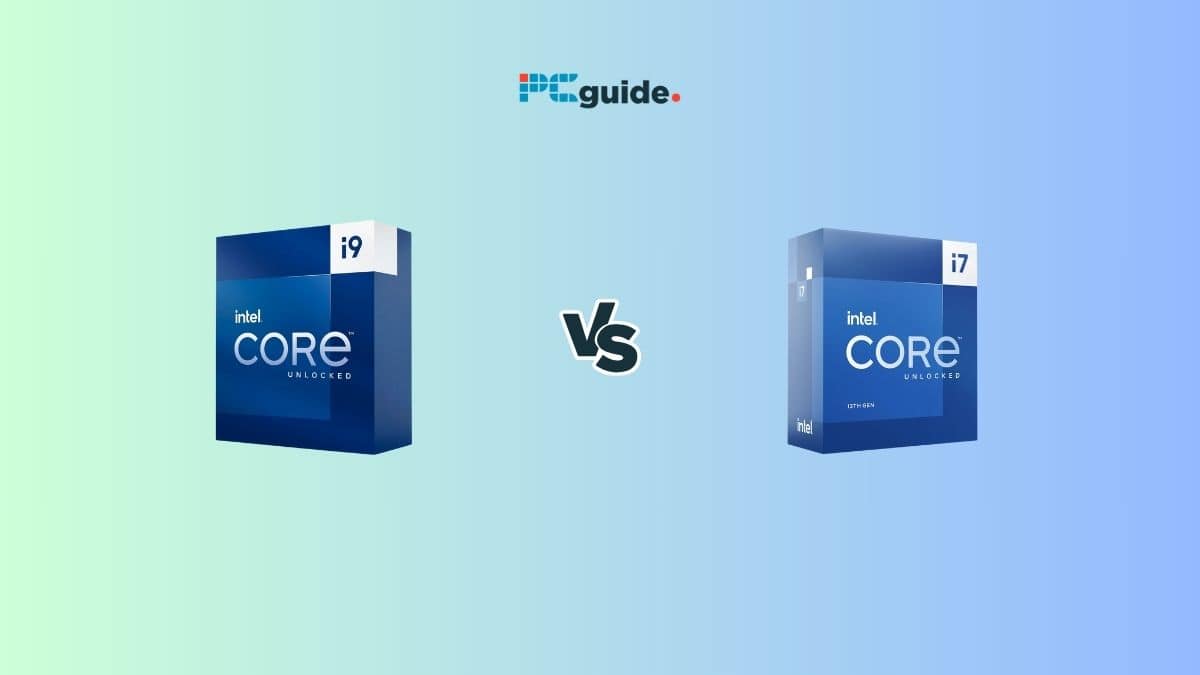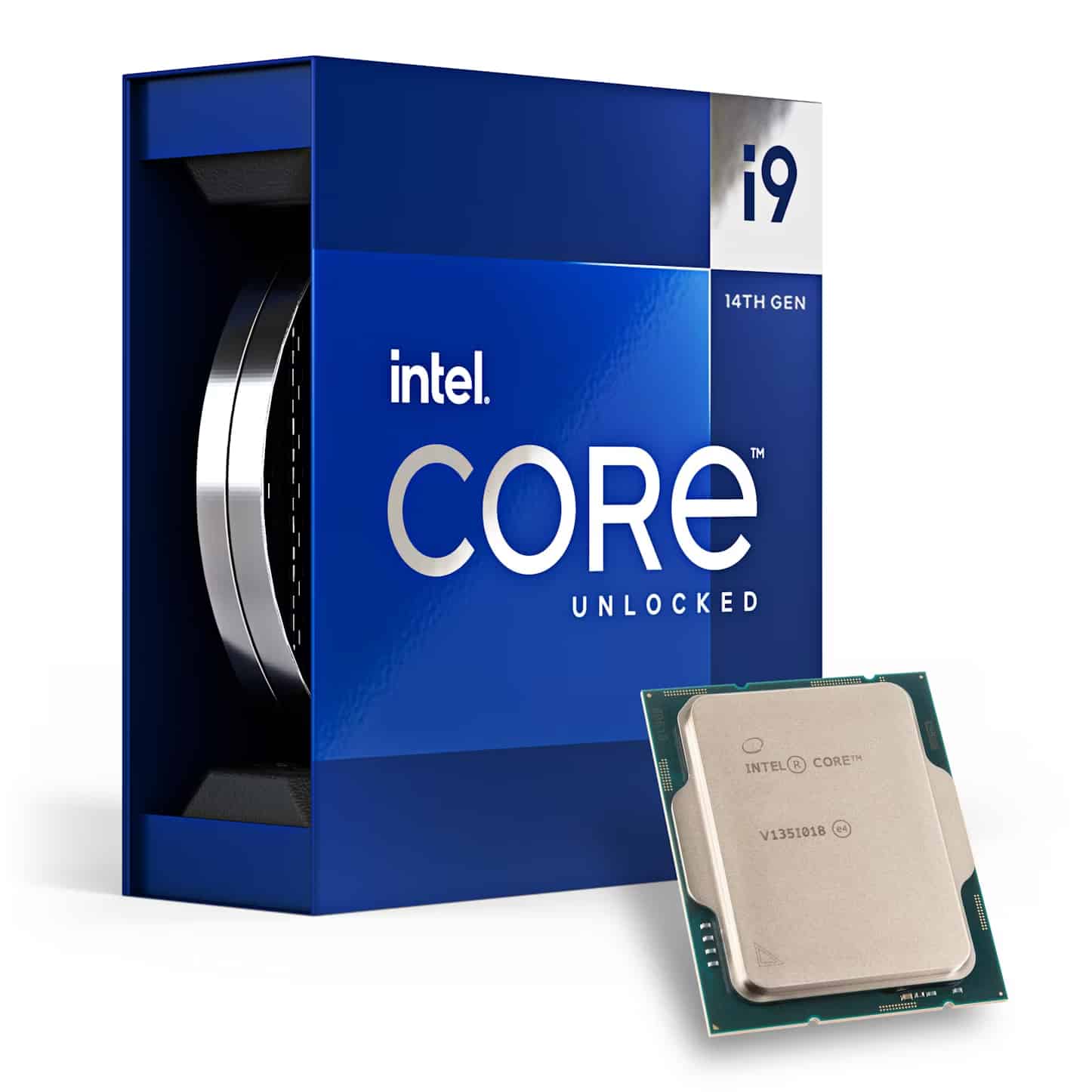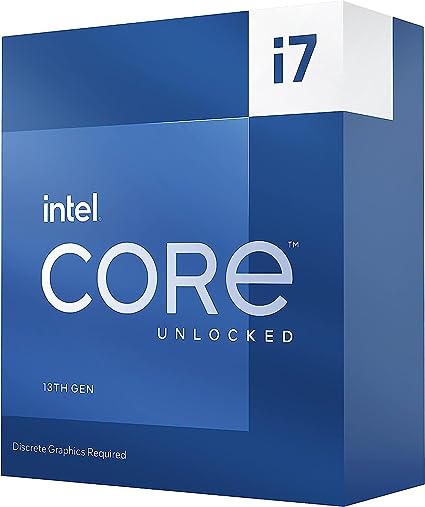Core i9-14900KS vs Core i7-13700K: What’s the gap?

Table of Contents
The battle for supremacy among processors continues to evolve in the dynamic realm of computer hardware. To understand the gap between the two processors, let's compare the Core i9-14900KS vs. Core i7-13700K. The Intel Core i9-14900KS marks a significant leap forward in processing power.
Positioned as the flagship model, it’s expected to pack a punch with its specifications. The ‘KS’ moniker typically denotes Intel’s highest-performing consumer-grade processors, and enthusiasts eagerly await its arrival. On the other end, the Core i7-13700K aims to cater to users seeking exceptional performance without delving into the top-tier segment. Let's look at how they fare in a fight against each other.
Prime Day is finally here! Find all the biggest tech and PC deals below.
- Sapphire 11348-03-20G Pulse AMD Radeon™ RX 9070 XT Was $779 Now $739
- AMD Ryzen 7 7800X3D 8-Core, 16-Thread Desktop Processor Was $449 Now $341
- ASUS RTX™ 5060 OC Edition Graphics Card Was $379 Now $339
- LG 77-Inch Class OLED evo AI 4K C5 Series Smart TV Was $3,696 Now $2,796
- Intel® Core™ i7-14700K New Gaming Desktop Was $320.99 Now $274
- Lexar 2TB NM1090 w/HeatSink SSD PCIe Gen5x4 NVMe M.2 Was $281.97 Now $214.98
- Apple Watch Series 10 GPS + Cellular 42mm case Smartwatch Was $499.99 Now $379.99
- ASUS ROG Strix G16 (2025) 16" FHD, RTX 5060 gaming laptop Was $1,499.99 Now $1,274.99
- Apple iPad mini (A17 Pro): Apple Intelligence Was $499.99 Now $379.99
*Prices and savings subject to change. Click through to get the current prices.
Core i9-14900KS vs. Core i7-13700K: Specs comparison
Let’s break down the key specifications and how they might translate to real-world performance:
- Core Wars: The Core i9-14900KS takes the lead with 24 cores (8 performance cores, aka P-cores, and 16 efficiency cores). This significant jump over the Core i7-13700K’s 16 cores (8 P-cores, 8 E-cores) suggests the i9-14900KS will dominate in multitasking and heavily threaded workloads.
- Frequency Matters: The i9-14900KS boasts higher base and boost frequencies across both its P-cores and E-cores. Expect snappier performance in everyday tasks, and potentially better gaming frame rates (if your GPU is powerful enough).
- Cache is King: While both CPUs have similar L1 and L2 cache per core, the i9-14900KS pulls ahead with a larger 36MB L3 cache vs. the i7-13700K’s 30MB. This means the i9 might keep frequently needed data closer to its cores, which could boost efficiency.
- The Power Trade-Off: The i9-14900KS’s TDP of 150W is higher than the i7-13700K’s 125W. This means it’ll likely consume more power and require a beefier cooler to keep temperatures in check.
Tabular comparison
| Specification | Core i9-14900KS | Core i7-13700K | Notes |
|---|---|---|---|
| Performance Cores (P-Cores) | 8 | 8 | Same count, but i9-14900KS likely has higher clock speeds |
| Efficiency Cores (E-Cores) | 16 | 8 | i9-14900KS doubles the E-cores for better multitasking |
| Total Cores | 24 | 16 | Significant difference, i9-14900KS wins in heavily threaded tasks |
| L3 Smart Cache | 36MB | 30MB | i9-14900KS’s larger cache could improve data access speed |
| Base Clock Speed (P-Cores) | 3.2 GHz | 3.4 GHz | Small difference, i9-14900KS boost clock is much higher |
| Max Turbo Frequency (P-Cores) | 6.2 GHz | 5.4 GHz | i9-14900KS might offer better single-core performance |
| Architecture | Raptor Lake Refresh | Raptor Lake | Even with similar clock speeds, the newer architecture could have improvements |
| TDP (Thermal Design Power) | 150W | 125W | i9-14900KS will likely need a more powerful cooler |
What this means for you:
The Core i9-14900KS, as part of Intel’s Raptor Lake Refresh, promises to be a performance powerhouse. If you do heavy content creation, demanding simulations, or just want the absolute fastest CPU for gaming, this upcoming chip is exciting. However, it’ll likely be pricier and power-hungry than the i7-13700K.
Core i9-14900KS vs. Core i7-13700K: Performance
| Specification | Core i9-14900KS | Core i7-13700K | Notes |
|---|---|---|---|
| Core Count (P-cores + E-cores) | 8 + 16 (Total: 24) | 8 + 8 (Total: 16) | i9-14900KS has significant advantage for multitasking, heavy workloads |
| Cache Size (L3) | 36MB | 30MB | i9-14900KS’s larger cache could mean faster data access |
| Base Clock (P-cores) | 3.2 GHz | 3.4 GHz | Small difference, but i9-14900KS also has higher boost clocks |
| Max Boost Clock (P-cores) | 6.2 GHz | 5.4 GHz | i9-14900KS likely offers better single-core performance for gaming etc. |
| Architecture | Raptor Lake Refresh (14th gen) | Raptor Lake (13th gen) | Even with similar clock speeds, the newer architecture might be more efficient |
The Core i9-14900KS promises a significant performance leap over its 13th gen counterpart, thanks to these key factors:
- More Cores, More Power: With 24 cores (vs. the i7-13700K’s 16), the i9-14900KS has the edge in heavily multithreaded tasks like video editing, 3D rendering, and scientific simulations. If you work with demanding software, this extra power is a big win.
- Clock Speed Champion: The i9-14900KS’s higher base and boost clocks (in MHz) mean snappier everyday performance and potentially higher frame rates in games.
- Cache Advantage: A larger L3 cache could help the i9-14900KS keep data close to its cores, reducing load times and improving overall responsiveness.
- Performance Proof: Leaked Benchmarks While we need official tests, leaked Cinebench R23 scores suggest the i9-14900KS could be 15% faster in single-core tasks and over 40% faster in multicore scenarios compared to the i7-13700K. This is a substantial increase.
Beyond the specs
- Architecture Matters: Even if clock speeds were identical, Intels ‘Raptor Lake Refresh architecture (14th gen) likely has efficiency improvements over the 13th gen.
- Don’t Forget the IGPU: Intel’s integrated graphics often get small improvements in each generation. This might matter if you need light gaming capabilities without a dedicated graphics card.
- The Price of Power: The i9-14900KS will likely have higher power consumption, meaning it’ll need a robust cooler and a beefier power supply.
Important considerations
- Multi vs. Single-Core: The i9-14900KS is the clear winner in multithreaded tasks due to its additional cores. Its single-core advantage seems smaller, but is still significant.
- Motherboard Compatibility: Ensure your motherboard supports the latest 14th generation Intel chips if considering the i9-14900KS.
Core i9-14900KS vs. Core i7-13700K: Price and value
| Factor | Core i9-14900KS | Core i7-13700K | Notes |
|---|---|---|---|
| Initial Price | More expensive than i7-13700K | Current MSRP around $420, but prices fluctuate | Future-Proofing |
| Performance Gains | Significant in multi-core, decent in single-core | Excellent, but outpaced by i9-14900KS | Is the extra performance worth the higher cost of the i9? |
| Target User | Enthusiasts, content creators needing maximum power | Gamers, most users who want great performance without breaking the bank | Depends on your workload intensity |
| Overclocking Potential | Likely good (if unlocked) | Decent overclocker | Might help close the gap, but voids warranty |
| Newer architecture,”more cores might give it a longer lifespan | Newer architecture, more cores might give it a longer lifespan | Still potent, but i9 has the edge here | How long do you keep a CPU? |
While the Core i9-14900KS offers superior performance, its higher price point may deter budget-conscious consumers. At a price of $689, the Core i9-14900KS commands a premium compared to the initial launch price of $409 for the Core i7-13700K. Although the exact current price of the Core i7-13700K may have decreased since its launch, it is likely to remain significantly lower than the price of the Core i9-14900KS.
Users must weigh the performance gains offered by the Core i9-14900KS against its higher cost and consider whether the additional investment aligns with their computing needs and budget constraints.
The value question is personal
- If you need the ABSOLUTE fastest CPU for heavy workloads, the i9-14900KS might be worth the premium, especially if time saved = money earned.
- For most gamers, the i7-13700K offers fantastic performance for the cost, and the money saved could go towards a better GPU
- Sales and Discounts: Prices on older CPUs (like the i7-13700K) might drop as the i9-14900KS releases, making the i7 an even better value.
Final verdict
Undoubtedly, the Core i9-14900KS seems poised to establish itself as the undisputed champion in terms of processing power, boasting higher clock speeds, more cores, and advanced multi-threading capabilities. For users who demand the pinnacle of performance, the i9-14900KS holds undeniable appeal.
However, the decision between the Core i9-14900KS and Core i7-13700K is not solely dictated by technical specifications. Price considerations are pivotal in the equation, with the Core i9-14900KS likely commanding a premium over its i7 counterpart.


